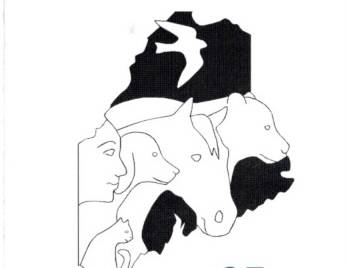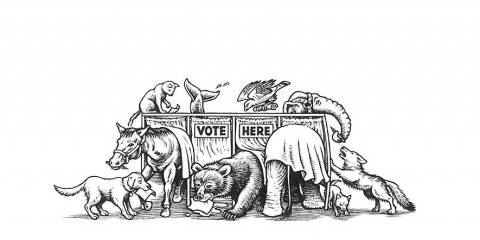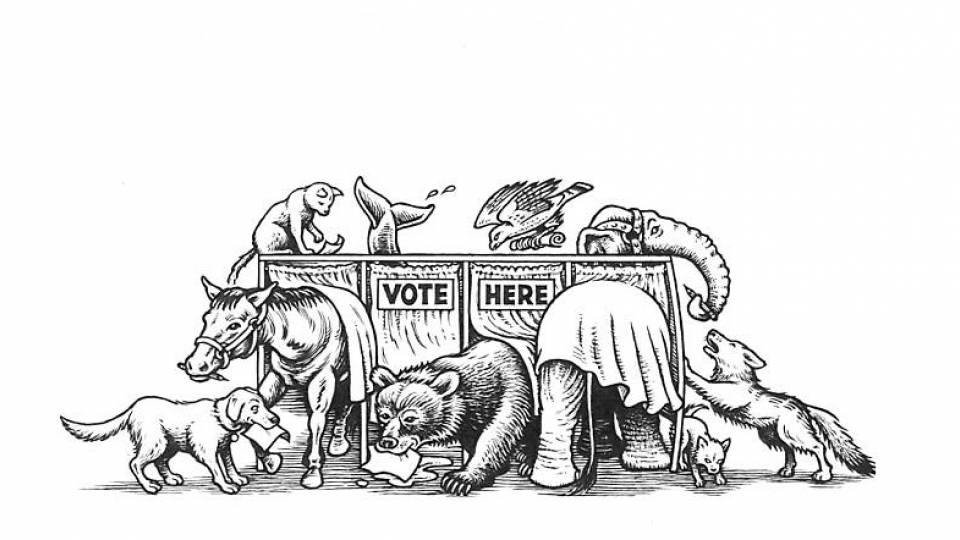The information we recieve allows MFOA to determine which legislators are animal-friendly, what issues resonate, and who may become possible sponsors and co-sponsors of MFOA legislation.
August 25, 2022 
Dear State Legislative Candidate:
We realize that you receive numerous inquiries regarding your position on various issues, but we believe most of your constituents care about animals; therefore, we ask that you take a moment to complete this brief (10 questions) questionnaire pertaining to issues that affect pets and other animals in Maine.
For over 25 years, Maine Friends of Animals (MFOA) has been the state’s leading animal protection organization. Our mission is to promote the humane treatment of animals through education, advocacy, and legislation. If you would like further information about our organization or have questions regarding the questionnaire, please contact founder and President Robert Fisk, Jr. at mfoa@falmouthstation.com.
MFOA has over 1,500 members and supporters throughout the state who are interested in what their legislators think about animal welfare issues. We inform them and encourage them to vote and actively support animal-friendly candidates. Your suggestions and comments on these issues / bills are welcome. Thank you for taking the time to respond and best wishes in your campaign.
__________________________________________
Maine State Legislature 2023-24
2022 State Legislative Candidate Questionnaire
- A puppy mill is an inhumane, large scale commercial dog breeding facility in which the health and well-being of the dogs is disregarded to maintain low overhead and maximize profits. These dogs, many unhealthy and with physical and/or psychological impairments, are also sold to pet stores, including in Maine. Last year, MFOA sponsored and passed a bill that would eventually end the sale of dogs and cats in pet shops in Maine, thus taking a stand against out-of-state puppy and kitten mills. Would you have supported that legislation to end the sales of puppy mill dogs and cats in Maine? Yes ____ No____
2. Canned hunts are trophy hunts in which certain wildlife species are kept in a confined (fenced) acreage to increase the likelihood of the hunter obtaining a kill. There are several hunting/game ranches on private land in Maine that raise exotic or non-native wildlife, e.g., elk, wild boar, fallow deer and bison, in fenced enclosures with no chance of escape, thereby eliminating any concept of “fair chase”. Clients, mostly out-of-state trophy hunters, pay large sums of money to participate in the “hunt” with a guaranteed no kill/no bill policy. The half dozen or so remaining “hunting” ranches are secondary forms of income for the property and decreasing in numbers. Canned hunting has been banned or restricted in 28 states. Would you support legislation to ban these hunting practices in Maine? Yes ____ No____
3. Do you believe the Endangered Species Act should be strongly protected in Maine? Yes ____ No ____
4. In the last Legislature, MFOA passed a progressive Pet Custody bill. In Maine, marriage dissolution is based on traditional property classifications, which means that existing state law provides no special provisions for pets. During divorce proceedings, companion animals are currently considered in the same light as inanimate objects such as a dining room set or lawnmower. The law requires judges to consider a list of criteria in determining the long-term well-being of the companion animal when deciding placement, similar to standards applied in child custody cases. This humane approach protects both animals and their humans, especially in situations where animal abuse is used as leverage. This criteria is only considered in cases in which the animal’s placement is in contention. Would you have voted for this legislation? Yes ____ No ____
5. In 2004 and again in 2014, Maine Friends of Animals, The Humane Society of the United States and many hunters led a state ballot initiative to ban the hunting of Maine black bears with the use of bait, hounds and traps. The common thread in these three practices is there is no “fair chase” — these methods are unsportsmanlike, inhumane, and unnecessary. Non-resident hunters have purchased more bear hunting permits than residents every year since 2005, allowing low skill, out-of-state “trophy hunters” to give a bad reputation to the Maine hunting tradition. Although both previous referendums were marginally defeated, they brought public awareness to our current hunting practices. Maine remains the ONLY state to allow all three of these unusually cruel methods of hunting. Would you support legislation to permit only fair chase hunting of bears as it is practiced in many other states? Yes ___ No ____
6. Decisions regarding Maine’s wildlife are determined by a few legislators in its oversight committee, the Department of IF&W, and an inflexible hunting lobby. Those who enjoy Maine’s wildlife in a non-consumptive manner, such as wildlife viewers, kayakers, primitive outdoor campers, bird watchers, hikers and wildlife photographers are essentially shut out of wildlife decisions, although they far out-number hunters in numbers and money contributed to Maine’s economy. Would you support legislation that would provide non-consumptive wildlife advocates to be more structurally included in the process of making decisions that affect wildlife, including representation on the IF&W Advisory Council? Yes ____ No ____
7. Perhaps the most pervasive form of domestic animal cruelty we have in the state today is what is called “dogs chained for life.” Dogs are very social pack animals and unfortunately many are chained to a doghouse where they eat, drink, urinate, defecate and sleep in the same confined area day after day, night after night, month after month with no or very little human contact or medical care. Some have even frozen to death. Would you support legislation that would require dogs to be untethered for a time period each day during extremes in temperature? Yes ___ No ____
8. Caged laying hens are some of the most abused animals in all of farming. Chickens are intelligent birds with a complex social hierarchy. These animals are stuck 24/7 in small cages with other birds, unable to open their wings, living and moving on cage wire floors. Jack DeCoster of DeCoster Egg Farms in Turner has been prosecuted for habitually violating labor, animal welfare and environmental laws, most recently in 2016 for cruel and inhumane conditions to chickens. Massachusetts, Michigan, California, Oregon, and Washington have passed cage-free egg laws. Would you support a bill to prohibit the sale of eggs in Maine from hens that are not kept in cage-free housing systems? Yes__ No___
9. History repeatedly shows that attempts to control coyote populations by bounties, open season and trapping do not work because coyotes are biologically and behaviorally adaptable. Despite the fact wildlife biologists are nearly unanimous in the opinion that lethal coyote management does not work, the hunting lobby persists. Year after year, proponents contend that coyote control is needed to protect deer in northern and eastern wintering habitat, despite any lack of evidence of its effectiveness. Opponents say coyote control is ineffective by scientific standards, has never worked, is unusually cruel in method, and is fiscally irresponsible, further burdening an under-funded DIF&W. Would you oppose coyote control legislation? Yes ____ No _____
10. Like greyhound racing, which was exposed for its cruelty, harness racing is a dying industry. Over the last two decades, there have been precipitous declines in racing audiences and the money waged on betting. Nevertheless, Maine has funneled millions of taxpayer dollars from slot revenues to racing tracks each year. Without these massive subsidies, harness racing could not survive as it loses more money every year. Should the state be shoring up a dying, inhumane and outdated industry when those millions could go toward economic development, education, healthcare or other under-funded services? Would you support a review of the allocation of the Cascade Fund from slot machines that primarily funds the harness racing industry in the state? Yes ____ No _____
———————————————————
CANDIDATE INFORMATION
Question # _________ I would be willing to _____ sponsor
_____ co-sponsor
Question # _________ I would be willing to ______ sponsor
______ co-sponsor
Other animal welfare issues of interest or animal legislation I would like to see:
________________________________________________________________________
________________________________________________________________________
________________________________________________________________________
Name:_______________________________City:_______________________________Email: ______________________________ Party affiliation: _____
House or Senate District: (H)______ (S) _____ Cities/Towns in district:
________________________________________________________________________
PLEASE RETURN YOUR QUESTIONNAIRE to Maine Friends of Animals, 190 US Route 1, Falmouth, ME 04105, or email to mfoa@falmouthstation.com , or submit online at https://forms.gle/WTrQPeLwvCHJPBzw7



